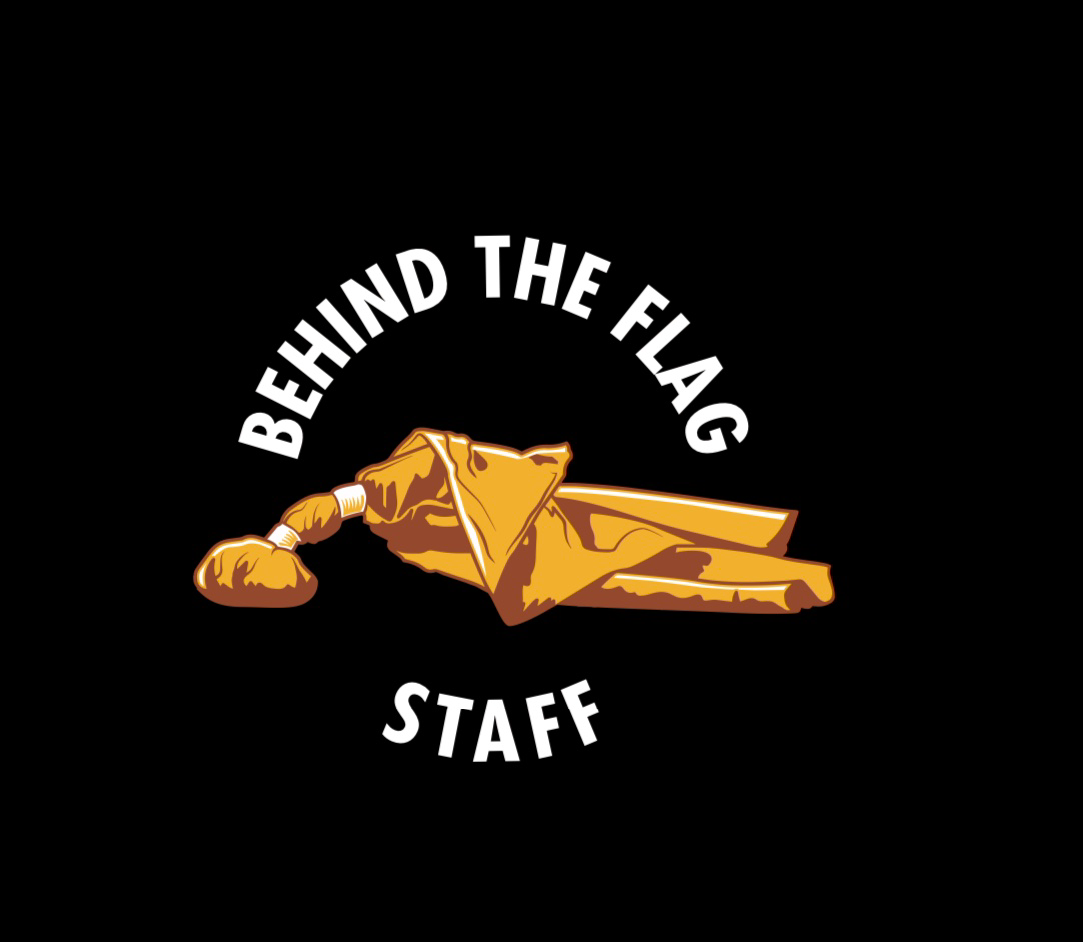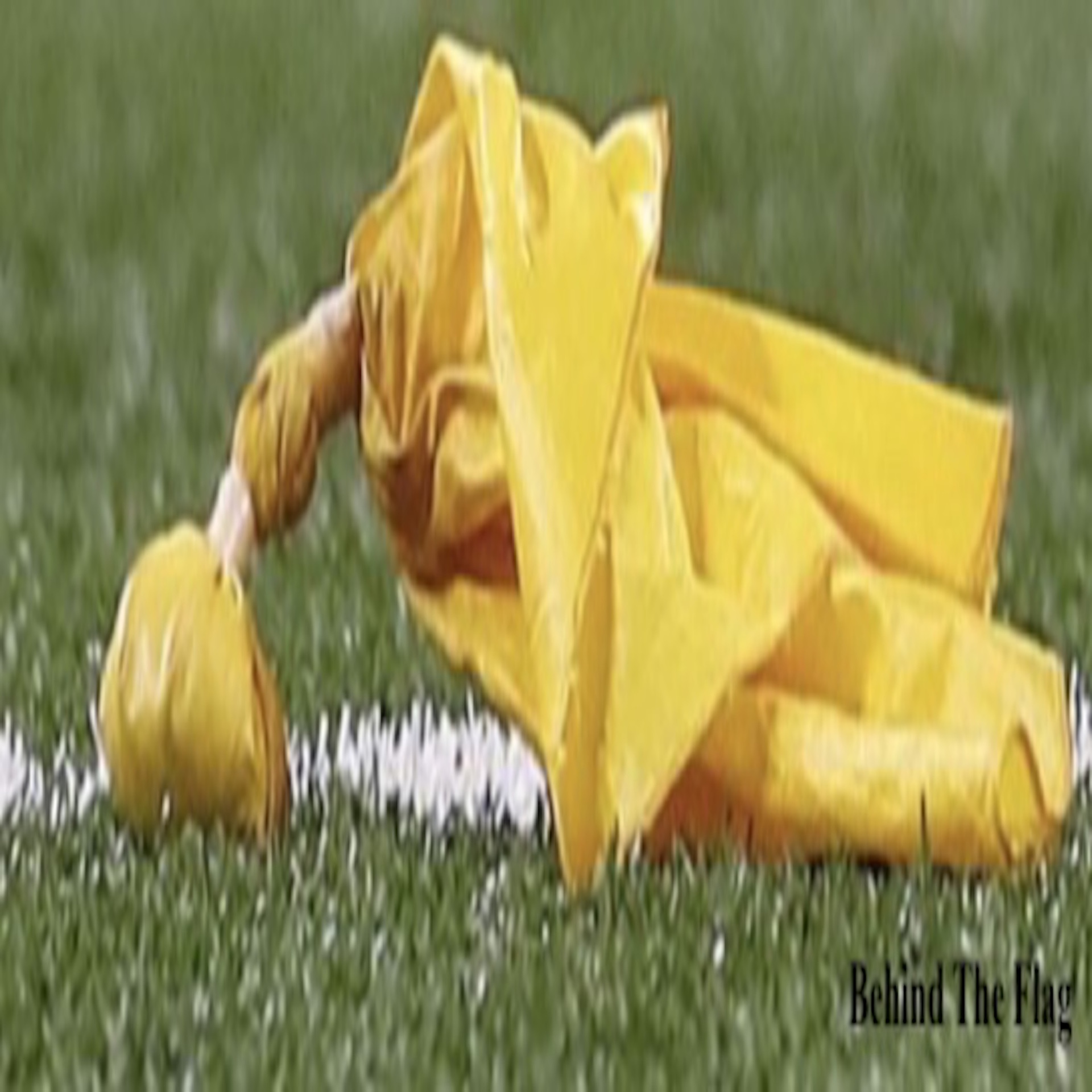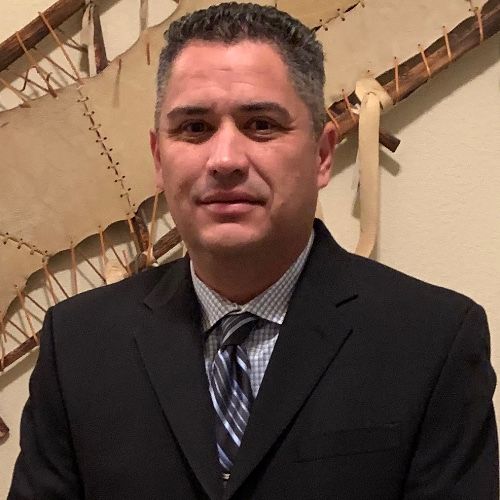Dean Blandino, CFO National Director of Instant Replay
Building Blocks To Success
Ken Adent (4s):
Ken. Okay. Great. Um, thank you guys for joining another, a webinar with us. Uh, Mexico high school football guys. Um, we have mr. Dean Blandino, uh, on The is our guest speaker today, but before we get started, uh, we usually, uh, let people know what's coming up and we really are going to take a few weeks notice on vacation from these. And we're going to come back with a rule sessions. Dennis do you have those dates for everybody?
Dennis Barela (35s):
I think we're going to start, uh, the first week, or I'm sorry, the week of June 15th, we'll send out, um, eight and one we'll hold the first one. Probably I'm thinking on a Saturday or Sunday. I'm not sure yet, but it's going to be that week and we're going to plan on running eight to 10 rule sessions through the summer. Take a break for the district clinic, or that tends to be, and then roll right into the regular season with the quizzes.
Dennis Barela (1m 6s):
This is the last spring summer session. And we're going out with a bang with mr. Dean Blandino
Ken Adent (1m 14s):
I hear that. Um, Dean we have our commissioner of football officials on with us Dean and Pappas. She usually likes to say a few words and then I'll introduce you. So Dana,
Dana Pappas (1m 28s):
Hey, Dean long time. No, see, how are you? Great. How are you doing? I'm doing well. Good. Well, thank you so much for spending a Wednesday night with us and giving, giving you have yourself and your time to our football officials here in New Mexico. Um, as Ken and Dennis mentioned, we're definitely going out on a high note at the end of these, the spring webinars, and, uh, it's great to have you on, and you're somebody I've always thought very highly of, and I'm, I'm excited to have you with our New Mexico family.
Dana Pappas (1m 58s):
So it's great seeing you again and thank you so much for your time this evening.
Dean Blandino (2m 3s):
No, thank you. And then, like I said, I'm honored to be a part of this. Like You've had some great speakers and, uh, and it's just, I'm excited to, uh, to just share some, share some stuff about Instant Replay and hear your questions and just, and just have a conversation.
Dana Pappas (2m 19s):
I appreciate it. Thank you, my friend. I'll turn it over to our, uh, our football folks.
Ken Adent (2m 24s):
Great. Thank you, Dana. I appreciate it. Um, I just noticed we have mr. Mike Contreras that you had of the ARMAC Mike, would you like to say hello? Do a Dean before he gets started.
Mike Contrezas (2m 36s):
Good evening. Dean how are you?
Dean Blandino (2m 38s):
I'm good, Mike, how are you?
Mike Contrezas (2m 39s):
I'm doing well. Thank you. I'm doing well. I'm, I've been enjoyed some of your, um, your past presentations and I'm really excited to, to hear what you have to say tonight to the, to the group here. Uh, I was going to save it for a question, but what I'll I'll ask that you, hopefully you will address, and that is how can they use Replay to improve their officiating on the field. And by that, I mean, and how they understand the Replay process and at the high school level, obviously we don't have it, how they can understand Replay what Replay is looking for and then how they can turn that around and improve their officiating on the field.
Dean Blandino (3m 22s):
Yeah, I'd say it's a good question. And we talked To How would you officials and NFL officials quite a bit about that it's, you know, knowing the Replay process, how does that make you a better on film official? And I think when, when Replay was first implemented, um, there was a, there was a clear separation and, and it was the on-field officials did what they do, Replay did what they do. And there really wasn't a lot of collaboration and it was almost, I think initially there was some, there was some kind of hesitancy on the, on the part of the game officials, uh, you know, in terms of accepting Replay I think that has obviously changed over time and it's become really a part of the fabric of the game at the college level and, and the NFL level.
Dean Blandino (4m 6s):
I think understanding the process, um, is, is critical, uh, because there are many things now that, you know, and the college game we're using wireless communication to communicate from the Replay booth to the on-field official's and then among the on-field officials and replays getting involved and in more and more things, penalty enforcements and, and helping in other areas because the game does happen very quickly. I think understanding what Replay does will help you even at the high school level, because what we're going to talk about it a little bit later is the Replay process.
Dean Blandino (4m 42s):
And I think if you can apply that process to whenever you watch game film, I think that can help you get better, right? How do we get better without actually getting out and getting reps right through video, right? And the access to video and has been, you know, has evolved over the years. And it's, it's, it's so much better than when it was when I first started or, or when I'm sure when many of you first started and we have access to film and access to people and, and, and to be able to collaborate that way is, is so important to our development.
Dean Blandino (5m 12s):
And so watching game film, that's what Replay is. It's watching plays on video, breaking it down, there's a process to it. And I think if you understand and learn that process, it can help you break down your own game film, and then it can help you see things out on the football field. So, so we'll go through that and hopefully it'll help you pick up some things and I'll be, I'll be quite honest. I'm also, I'm going to, you're going to hear a little bit of a recruiting pitch from me today. And, and because we need, we need good people in Replay and we need to find other ways to create a pipeline, um, and inclusive and, and sustainable pipeline.
Dean Blandino (5m 50s):
And, and so, and so you're going to hear a little bit of that as well.
Mike Contrezas (5m 53s):
Good. Thank you very much, Mike.
Ken Adent (5m 55s):
We're asking Dean a question. So, um, again, you guys Are, our guest today is Dean Blandino you can look on the left side of the screen. His, his resume is impressive. All it, I won't read the whole thing, but, um, fascinating story, uh, multifaceted. Mmm. And the who's who of, of college football officiating, especially in the Replay area. Um, uh, just a little story. Dean I, this is my first year at Sassa and I got a position for off field Replay just to learn more about it.
Ken Adent (6m 30s):
And, um, it has just opened my eyes to Replay and it's actually going to make me a better on-field official. Um, so I'm really excited to have you here today, but I'll turn it over to you, ladies and gentlemen. Dean Blandino
Dean Blandino (6m 47s):
All right. Well, thank you. So what I want to do, and I'll, I'll just share my screen here and hopefully do this the right way. I've been, I've been on a, I've been on zoom calls pretty much all week, but I think we can figure this out. And, um, so what I want to do is I want, I want to talk about, like I said, The the recruitment process, and I think this is going to be important as, as the future of Replay and what, and what that, what that looks like.
Dean Blandino (7m 17s):
And it, and it's going to start with, it's going to start with, with people, it's going to start with people like you. And, uh, and so let me see if I can get this here.
Ken Adent (7m 31s):
That's working. Okay, good. Good, good.
Dean Blandino (7m 34s):
So let's go, Let's go to the beginning. Right? So, so it starts with people, right? And, and like I said, we are trying to create an inclusive and sustainable pipeline for Replay and, and what our population currently exists, um, of, and the college ranks is, is it's mostly made up of retired on field. And then there's obviously that was, that was our, our pool, right?
Dean Blandino (8m 4s):
When Replay first came in, in the mid two thousands, well, where were we going to get people that understood officiating and understood rules? Well, they were going to be on field officials in, and the way it happened was on-field officials that were toward the end of their career for whatever reason. And, uh, and they ended up in the Replay book and many of these officials have been successful. They've been, they've done really well, and some of them have struggled. And, and what I'm going to talk about is I'm going to talk about that Replay official profile and what we're looking for and, and why it makes sense to look outside that, that pool of people.
Dean Blandino (8m 41s):
Um, so what we want to do is we want to identify people like yourselves, people from around the country that are on the field. Now that maybe you're not thinking about, um, I, I want to, I have goals. I have things I want to achieve on the field. I love it. Um, but maybe I haven't been exposed to Replay maybe I don't understand what they do. And, and, and so if we can educate People like yourselves on field officials that are earlier in their careers, and maybe, maybe it'll maybe a light bulb will go off, maybe, maybe something will click and you say, Hey, wait a minute.
Dean Blandino (9m 14s):
I have those skills. And I could apply those skills to Replay and maybe I could go even farther in my career than I would on the field. So we want to identify people that have the skillset and have an interest and get them opportunities. Right. We want to, we want to look outside the box and look outside of fishy. Okay. Right. Can we recruit people? Not from the officiating moral, believe me, I didn't, I didn't, I never officiated on the field. And, and I feel like I accomplished a lot in, and I did it through different ways.
Dean Blandino (9m 45s):
I did it through learning the rules. I did it through video and technology. And, and so, so you can accomplish what you want in a lot of different ways. So we're looking at student athletes, we're looking at lower levels, officials and other sports or athletes and other sports. Maybe, maybe these are, these are athletes at a division two or division three school playing football. And aren't going to go to the NFL on the field as a player, but they love the game. They want to stay involved. Maybe they can transition as an official, and we can teach them the rules and teach them the mechanics and, and help them along.
Dean Blandino (10m 19s):
Right. As, and then as, as all, you know, it doesn't, it doesn't happen overnight. And we don't, we're not looking to, to fast track people. We're not looking, but we want to get people from other areas, interested in officiating, interested in Replay and, and, uh, and we can create that pipeline. Okay. So what does that profile look like? What are we looking for in a, in a Replay official, it starts with character and, and look, this isn't rocket science. Um, if, if I'm the head of any company and, and I don't care if whatever industry it is, I want people with good character that that's a part of it.
Dean Blandino (10m 56s):
And when we look at on-field officials, right, we want, we want good people. It's as simple as that. And you're going to spend time on cruise. You're going to spend time communicating with people, interacting with people. And we want, we want the type of people that have good character that are going to represent our organizations well and are going to make this environment and make this whole process and enjoyable one. So it starts there. And then as we get into more specifics, right, with looking for people that are more analytical, all right, or have, have the ability to analyze plays instead of officiating it.
Dean Blandino (11m 33s):
And that's the heartless transition. When you talk about people that I've worked on the field that transitioned to Replay, it's hard. You have to, you have to reprogram your brain because you're used to looking at the game a certain way. You're gonna use, you're gonna use your mechanics and your positioning and your experience and your instinct and your feel, and guts sometimes To make decisions in a split second, looking at it once in Replay, right?
Dean Blandino (12m 3s):
Those things can help us in certain areas, but we're not making decisions based on what we feel or what we think. Okay. We have to make decisions based on the video. And we have to focus on what you can prove. So we can look at a play and get a feel for it. We could think something. I think that Pass, this is incomplete. It looks like it's a catch, but when you're using those types of language and the Replay booth that can lead us down a wrong path, because you have to prove it with the video, Prove that it was a catch prove that it was incomplete, prove that it was a touchdown.
Dean Blandino (12m 45s):
So the question you have to ask yourself when you're considering replace, can you work through an analytical process? Okay. So as you think about that, think about that question. Can you manage multiple inputs when you're up in the Replay booth? And I don't know how many of you have been in a Replay booth? Um, it can be overwhelming the first time. And so you've got there's there's technology that we have to deal with. There's three television screens in the college game. You've got a technician that's responsible for operating the system.
Dean Blandino (13m 18s):
You have a communicator that is your assistant, your I R number two, you have, in many cases, a fourth person in the booth that is insistent Communicare that is going to help you describe what's happening on the field and tell you what the offense is doing. And then if we go to a review, we're talking to the referee. So can you manage all of those, all of those streams of communication, and sometimes it's happening simultaneously. So you ask yourself the question, can you handle process where you have to manage a number of inputs, simultaneous <inaudible>, Are you a flexible thinker?
Dean Blandino (13m 57s):
This is so critical because not all replays are created equal as we go through process and a little bit, you're going to see as the game situation changes and it's changing every play, right? That's going to dictate what we do in the Replay. So we have to have the ability to apply the proper rule at the proper time. Now that that on-field officiating has that aspect as well. Right? Can we use our experience to know when this set of circumstance presents, it presents itself?
Dean Blandino (14m 28s):
Can we apply the proper role and the next time it happens, can we be consistent? So again, ask yourself the question. Are you uncomfortable working in an environment where the hard and fast rules don't always apply? Look, we work in officiating. It's not always, we want rules to be black and white, but we know there's so much gray. And even in the Replay booth, when it's supposed to be more definitive and it's supposed to be more objective, we have gray area and we have to be able to navigate through those gray areas.
Dean Blandino (14m 60s):
So can we do that? All right. Attitude again, attitude is so critical to To anything that we do, but especially in the Replay booth, we're looking for people with the right attitude. Are you coachable? Okay. And even, and even probably more critical. Cool is can you approach the game in a different way? Okay. Can you adapt your way of thinking to a new process? The Replay officials that are successful adapt their way of thinking to the Replay way of thinking, not the other way around, if you're stuck in your ways coming from on the field or coming from where you're coming from, and you're stuck in your way of thinking, and you're not going to Changed the way you approach the game, you're not going to be successful.
Dean Blandino (15m 47s):
So you asked yourself that question, you know, am I open to a new way of looking at the game? Can I turn off my officiating brain at times? And can I be more analytical? Really, really tough sometimes. And when you talk to play to people that have Johnny on-field and then work Replay, they'll tell you that's the hardest transition sexual world looking for. Okay. So, so what are the, what are the Building Blocks To Success and look, this is not specific to Replay.
Dean Blandino (16m 19s):
This is on-field officiating To, but this is what we're looking for. This is how we create Success and these are Building Blocks they could also be barriers to success if we're not diligent in these areas, preparation. Okay. Preparation is key preparation. If we're prepared and we've gotten through the thing is we need to go through and we're not just winging it, we're going to be successful. So what does that look like? Right? Are we evaluating our own performance?
Dean Blandino (16m 49s):
We have a game. We work the game during the week. Are we evaluating our performance? Are we going through every game you work, you know, those three or four plays that you have a question about that you can't wait, you know, to go look at the film and see what the film shows it's the same in the Replay booth, there are those three or four plays. You want to go back and look at, you know, are you going back? Are you evaluating your own decisions after the fact? And are you coming to the same conclusion?
Dean Blandino (17m 20s):
That's what we ask our Replay officials to do, you know, collaboration with your peers. We have access to so many people. We have access. We have ways to communicate. Um, like we never had before. Are we communicating with our peers, working with each other, sharing, plays, sharing, test questions, those types of things. Okay. Our rules and our mechanics review is so important. What was knowledge is critical. Um, we want to be experts in the, and it doesn't change.
Dean Blandino (17m 50s):
And the Replay many Replay officials think that when they become a Replay official, they don't have to know all the rules. I only have to know what's reviewable, and that's not the case. We have to know penalty enforcements, because we may overturn a call on the field. And now a penalty enforcement may change. And we have to know that. So our rules, our mechanics, we have to be experts at all times really critical. One of the things I like to do was I was learning, you know, I was learning the NFL rules.
Dean Blandino (18m 21s):
Um, I was learning the college rules. I study up on the high school rules. I try to take a section of the rule book and I try to write it in my own words because I can understand my own words. Rule books are written. It almost feels like legally, it feels like legal, a legal document. And, and, and in some ways that's what it is. But if we can write it in our own words, that we can understand it and have somebody help us, maybe somebody, maybe it's a mentor, maybe somebody on our crew, somebody that we've looked up to that can help us.
Dean Blandino (18m...




